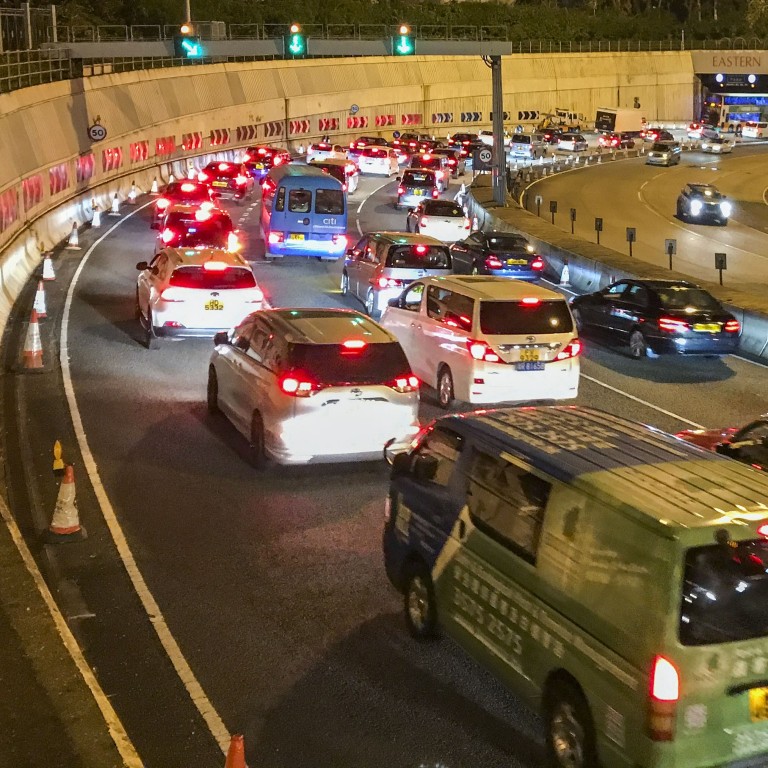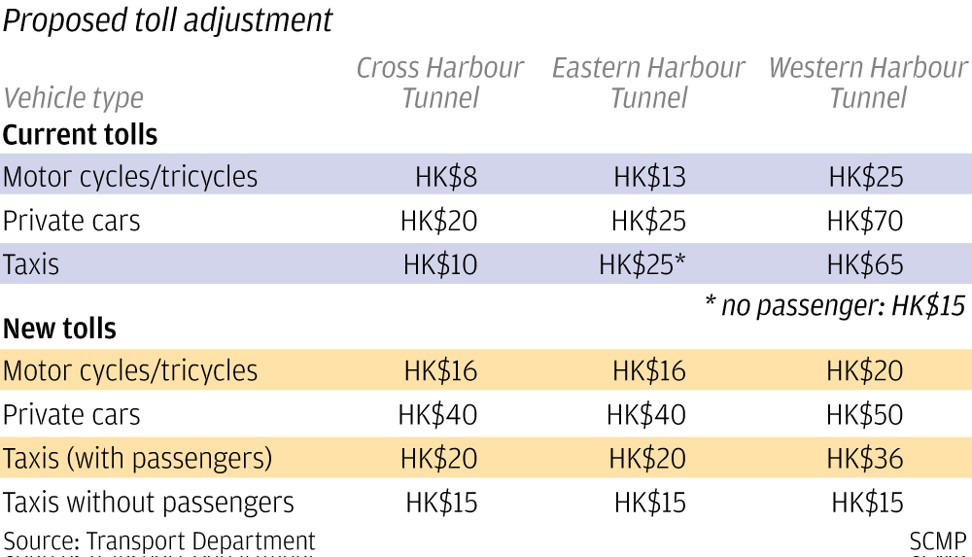Advertisement
Advertisement

Letters | Why all Hong Kong tunnels and roads should be made toll-free
- With the development of smart city road technologies, motorists would be able to choose routes in accordance with traffic levels, without worrying about costs
I was intrigued recently by a lawmaker who proposed that the tunnels connecting Kowloon and the New Territories be made free of charge, in order to alleviate the potential rise in costs from the price restructuring at the three cross-harbour tunnels. The idea is certainly popular with many road users, but why not make all our roads and tunnels free? As others have argued, motorists are already paying the annual road tax and some tunnels have already recovered their building costs.
It makes economic sense to charge motorists because tunnels are expensive to build and costly to maintain, especially when expensive engineering techniques were used to adjust to the city’s geological landscape. However, the way these charges are levied is inconsistent because major highways, such as the Tolo Harbour and Tuen Mun highways, are toll-free, despite the great financial costs incurred, and engineering complexity and environmental damage involved because of land reclamation and pollution.
Infrastructure investments are not proposed because they make private investment sense, but because building them contributes to our overall economy and employment, relieves traffic and increases mobility. Not only have these factors benefited New Territories residents, but all of Hong Kong. At the moment, out of 16 tunnels, three – Kai Tak, Cheung Tsing, and Nam Wan – are already toll-free, and their maintenance costs are particularly low, as they do not require workers to man toll booths and there are no other additional administrative costs to consider.

Toll-free roads offer a number of benefits, the biggest being that motorists have a wider range of choices when selecting routes. With the development of smart city road technologies, motorists will then be able to choose their routes in accordance with the level of traffic, without worrying about costs. Also, bus passengers may see fares fall because all tunnels are free. If we are reviewing the cross-harbour tunnels policy, let us also consider our overall road transport policy in the long term.
Henry Yau, Tai Po

Post
